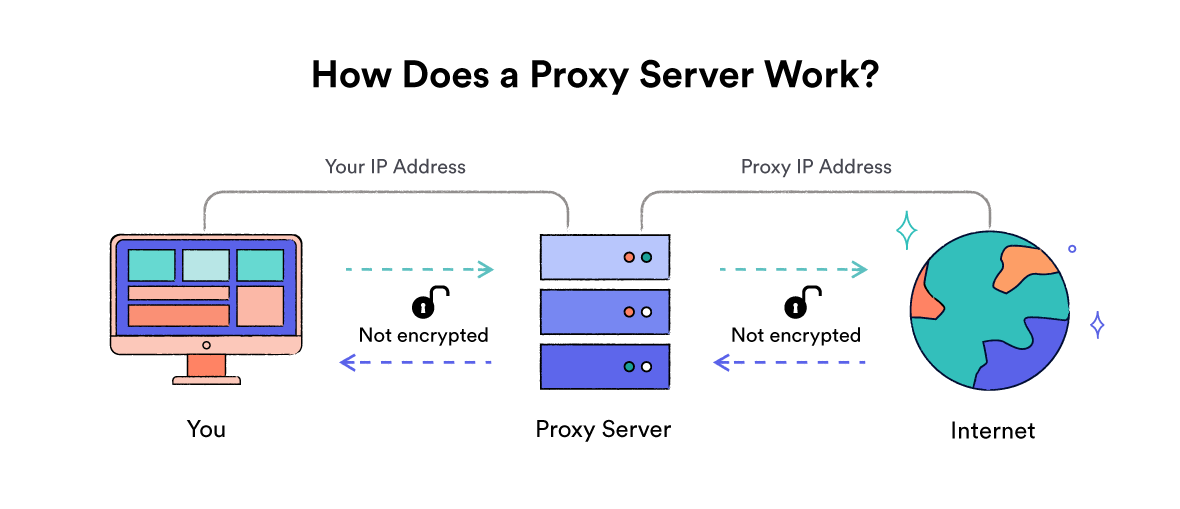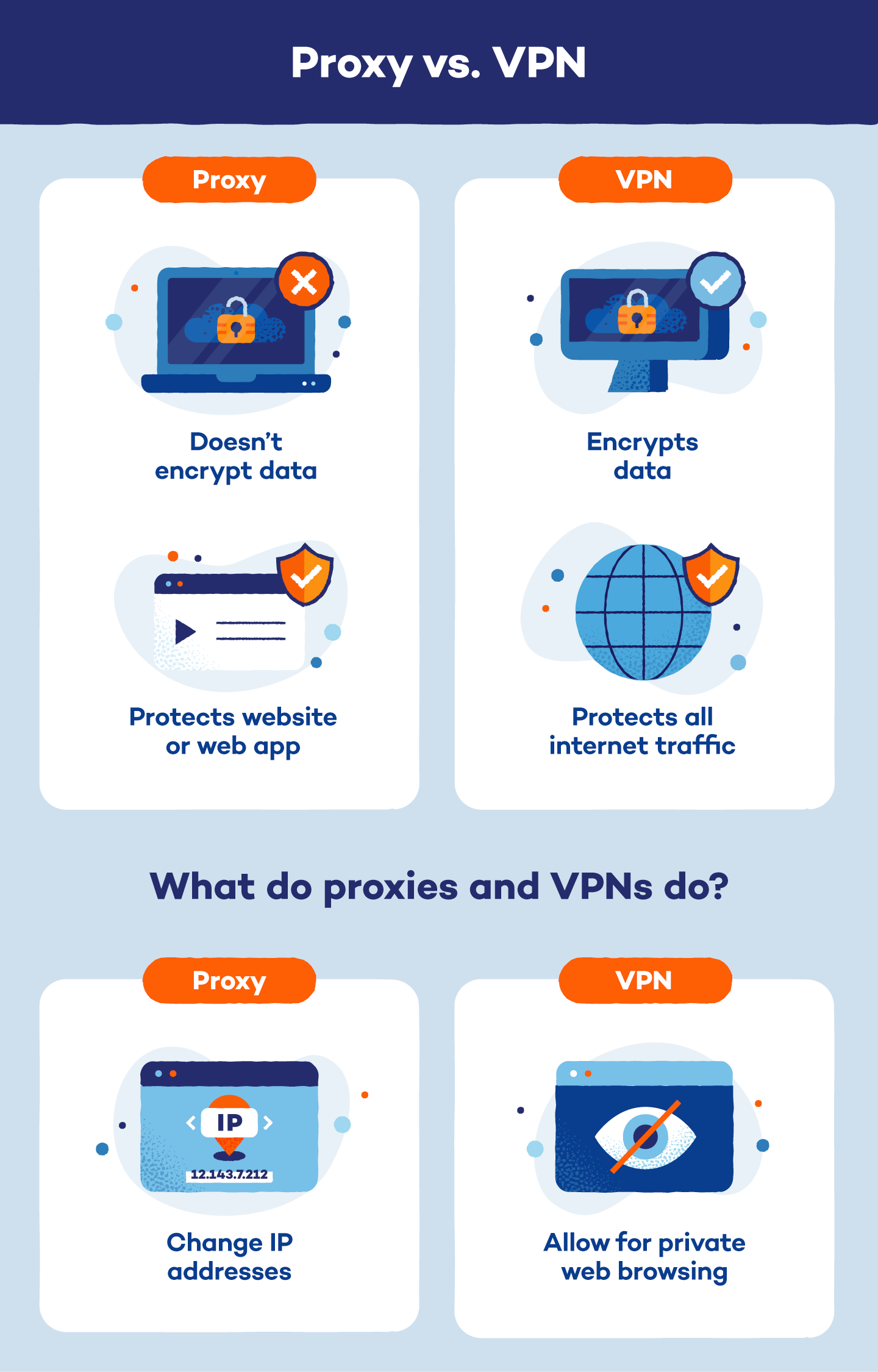Featured
Table of Contents
Vpn Vs Proxy: Detailed Comparison
SOCKS5 is not the like a VPN. Rather, SOCKS5 is a type of proxy server that's usually used for online gaming, sharing files or video chatting on a single site or app. VPNs, on the other hand, secure all web activity throughout all websites and apps.
For this factor, some users pay for a private proxy server which restricts the number of users that access it, speeding up your connections. Proxies are likewise susceptible to security exploits: they can be open to attack, allowing the bad people to infiltrate networks or take private data. Some proxies can still track (and shop) your surfing practices, as well as recording usernames and passwords rendering that guarantee of anonymity null.
VPNs utilize a local client to create the connection to the VPN server, so any regional CPU or memory problems will decrease the connections. VPNs are usually more expensive to use (and keep) than a proxy server, and they are frequently more intricate to handle. Similar to proxy servers, VPNs can't guarantee privacy while searching.
A VPN only guarantees an end-to-end encrypted connection if you use the HTTPS protocol when you go to a new web address. Your data will be secured to the VPN, however from that point on, it might be unencrypted to the web server. For some sites, this may be unimportant: an information-only website with no login or payment options for example, but for any websites that need a login or online payments or any sensitive information make sure the site is enabled to use HTTPS.
Torrenting With A Vpn Vs. A Proxy
The biggest argument to utilize a VPN rather of a proxy is the total file encryption for all traffic you get with the VPN. Dollar for dollar, a VPN is more safe and secure than a likewise priced proxy. VPN service providers keep their own networks and you use their IP addresses for your connections.
Privacy and security matter these days, regardless of if it's your company data or your own personal data you require to safeguard. Ensure you're investing time and money into the right tools for your security objectives: both proxies and VPNs include an extra layer of security and privacy to your information.

If your concerns are more around "what sites are my users striking," a proxy server is a better tool. To get one of the most bang for the dollar (and to safeguard your data as a security-aware resident), register for a well-regarded VPN service. For the most part, VPN services allow you to use servers in different locations to work around content constraints.

If you're worried about your privacy when using the internet, you might have considered using either a VPN or a proxy server. Both increase the security of your web connection, but how exactly do they work, and how do they differ? If you are looking to enhance your online personal privacy, it is very important to understand the distinction in between VPNs and proxy servers to ensure you're picking the best tool for the task.
Vpn Vs. Proxy: Which One To Use?
Typically, when web surfing, your computer system links to a website straight and starts downloading pages for you to check out. When you use a proxy server, your computer sends out all web traffic to the proxy.
VPNs deal with the operating system level. This indicates that they redirect all your traffic, whether originating from your browser or an app. They also encrypt traffic between the internet and your gadget. As an outcome, your Web Service Supplier (ISP) can't see what you're doing online simply that you're linked to a VPN server.


While speeds differ from service provider to service provider, VPNs are usually the much faster choice. It isn't an excellent idea to utilize a totally free VPN service given that they are limited in what they can use and tend to mine your information. As an outcome, users tend to choose paid-for VPNs, which provide higher data encryption and are more safe and secure.
This means that, in general, VPNs tend to be the more costly option. VPNs work on the operating system level and reroute all your traffic through a VPN server, while proxies work on the application level and just reroute the traffic of a specific app or internet browser. This means that VPNs encrypt all web activity, despite website or app, while proxy servers just hide one website or app at a time.
Proxy Vs Vpn: What's The Difference? (2023)
Proxy servers aren't simply used to open specific websites. Certain organizations companies, schools, or libraries or perhaps parents might desire to set up a transparent proxy to obstruct or filter users' material when utilizing the web.
Latest Posts
7 Best Vpns For Business In 2023 And Some To Avoid
Best Phone Vpn In 2023
Vpn Not Working On Windows - Common Errors & Fixes